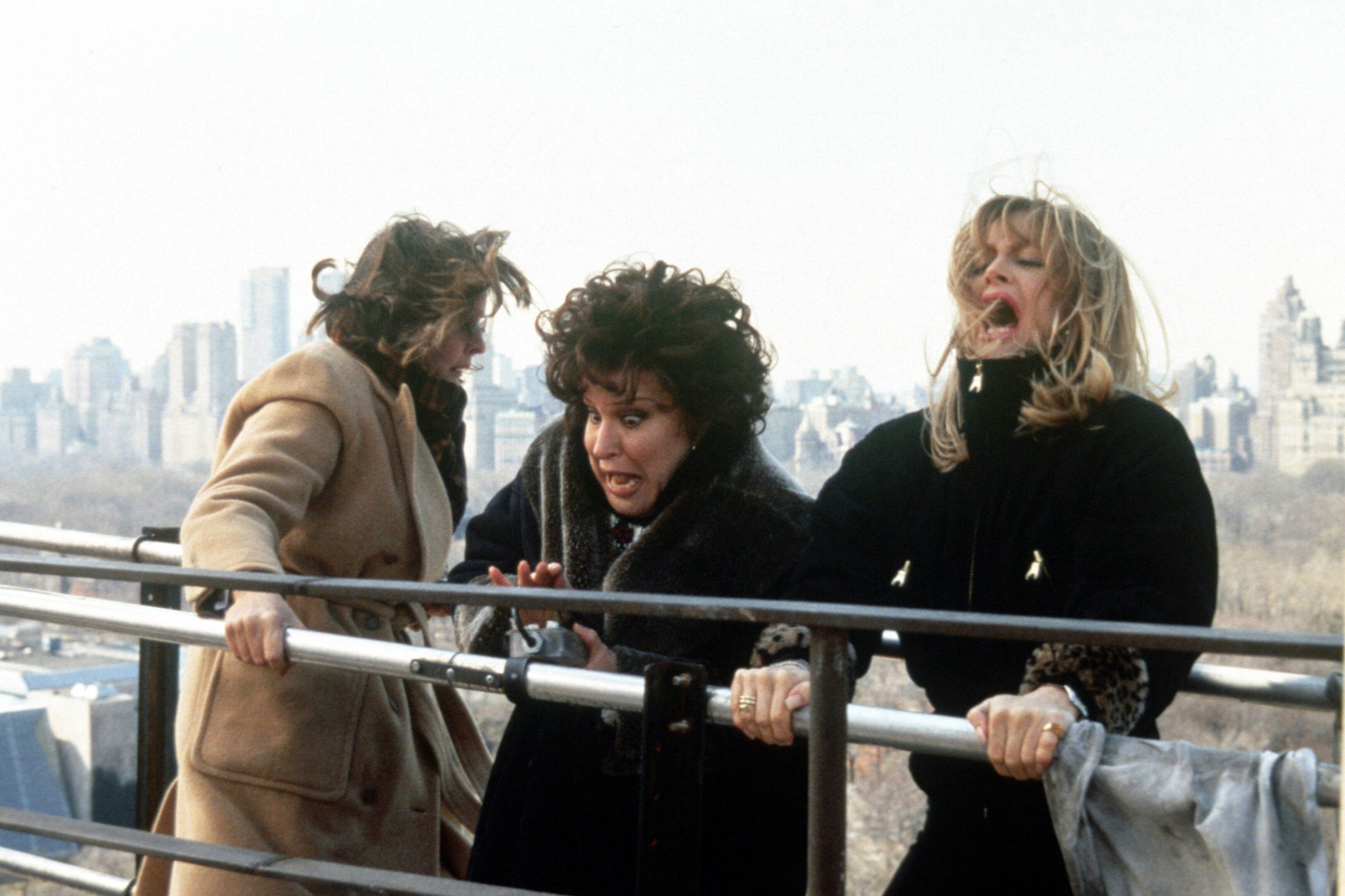vol. 18 - The First Wives Club
The First Wives Club (1996)
directed by Hugh Wilson
Susannah Clark
The First Wives Club | 1996 | dir. Hugh Wilson
My mother was shocked when I unwrapped the VHS tape on Christmas morning. Who gives The First Wives Club to an eight year old? she lamented on the way home later. Though my mysterious great aunt was herself a first wife, I don’t think there was any deeper meaning to her present; I suspect she had a subscription that regularly sent her newly released VHS tapes and she gave away the ones she didn’t want as gifts.
But that eight year old ended up loving The First Wives Club; she watched it over and over. Burnt out on Disney, I felt like I was watching a real grown-up movie, like I was getting away with something. It’s rated PG, but the film opens with a suicide. Couples divorce. Innuendo abounds. I had never seen love so cynically depicted. It seemed more honest.
A few years later, for an 8th grade English assignment, I was tasked with predicting the future and writing a speculative autobiography. I imagined my life story as if I was in my eighties, reflecting back. Under the influence of 13 Going on 30 and Sex and the City, I wrote out a yuppie dreamscape, a hipster ever after. And while now at 33 I don’t work “in the music industry” and I’m not married to Blink-182’s Mark Hoppus—I did get one thing right. Actually, two things. I live in New York City. And I am very much in love.
There’s a point in your dating life when you realize that love isn’t like in the movies; first kisses are sloppy, TSA won’t let you run through an airport, it's not an adorable farce when someone lies to you right off the bat. But when did you realize that money isn’t like in the movies either? As a child I was certainly aware that Kevin McCallister’s house was nicer than mine, but I never thought to think about why. And if you had asked me if I thought I would end up living in a house like that when I grew up, I would have said of course, as long as I worked hard for it. Anyone could. The American Dream is just another rom-com.
In the pandemic, my fiancé and I have been revisiting childhood favorites, combining our personal canons. I’m often shocked by the amount of sexual references that went over my head as a child (Grease is the most extreme example of this). The First Wives Club stands out, though, not for being risque, but for being classist. Boomer bombshells Diane Keaton, Bette Midler, and Goldie Hawn play estranged best friends who band together to get back at their philandering ex-husbands.The moral of the story? Money can buy happiness.
Don’t get me wrong—I love a good revenge tale. The music video for Blu Cantrell’s “Hit ‘em Up Style” is objectively a masterpiece. But wealth is the most boring deus ex machina. The first wives are only able to open up their titular club with help from their friend who just so happens to be a millionaire. Together they manipulate a social climber (played by Sarah Jessica Parker) to bid on auction items for hundreds of thousands of dollars like Monopoly money. Her lack of taste (i.e., her socioeconomic status) is a repeated punchline. It’s not just materialistic and cruel—it's lazy storytelling.
The First Wives Club ends with a musical number, perhaps a wink to the fairytale absurdity of its resolution. Our three heroines belt Leslie Gore’s “You Don’t Own Me,” sashaying around the marble columns of their new ornate property. And despite the Marxist tendencies I’ve developed in my thirties, I’m still happy for them. They got rid of their terrible husbands! Like capitalism, love is no meritocracy. It’s not that it doesn’t take hard work—it’s that it doesn’t only take hard work. You’re lucky to meet someone in the first place, and you’re lucky to be able to strike out on your own when it doesn’t work out.
*
My wedding is in two months, the rom-com danger zone. While planning and budgeting I’ve been re-evaluating all of the movie and TV weddings I’ve seen, trying to reconcile the lavishness of the event with the presumed income of the characters (I’m really fun at parties). Our wedding won’t have an ice sculpture or a surprise horn section, but I still feel spoiled, more lucky than accomplished. Our bedroom is a bit small (in 8th grade, I was picturing the Friends apartment) but generally, my life turned out better than what I dreamed of as a child, better than what the movies implied was possible. For richer or poorer, for better or for worse, our marriage story is about to begin. Next to him, I’m on the edge of my seat.
Susannah Clark is a writer and editor based in Brooklyn, New York. Her writing has appeared in Inside Higher Ed, 68to05, the Brevity blog, and elsewhere. Her essay “House Blend” was listed as a notable selection in 2016’s Best American Essays.

